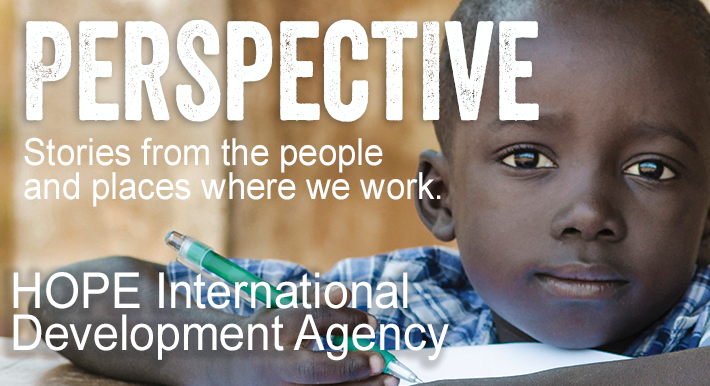Since 1990, the rate of hunger in the world has fallen by 33%, according to the Global Hunger Index (GHI).
In all, 23 countries have managed to reduce their GHI scores by 50%; a laudable accomplishment!
Bangladesh, Cambodia, and Ethiopia – places where HOPE International Development Agency has worked for decades – rank among the “Ten Most Improved Countries”.
Other countries, such as Burundi, in Africa, have not yet been able to make substantive gains in reducing hunger - Burundi is ranked among 19 countries that have “alarming” or “extremely alarming” rates of hunger. HOPE International Development Agency has recently begun working in Burundi, helping families gain access to clean water.
Despite significant improvements, more than 870 million people are still going hungry worldwide.
 These are the men, women, and children who wake up hungry every day. They don’t know if there will be food or not. These are the women who walk miles to fetch unclean drinking water that destroys their health and that of their children. These are the men who labor until their hands are raw – all for wages so meager, they can’t even buy the most basic of items.
These are the men, women, and children who wake up hungry every day. They don’t know if there will be food or not. These are the women who walk miles to fetch unclean drinking water that destroys their health and that of their children. These are the men who labor until their hands are raw – all for wages so meager, they can’t even buy the most basic of items.To overcome this, we focus on building resilience within communities. This means understanding the root issues, and working hard to bring people together to fight poverty as a group rather than alone.
A resilient community doesn’t crumble when drought occurs or when there’s a food shortage. It overcomes these shocks, and keeps itself out of poverty. This is what HOPE International Development Agency’s focus is when we work with communities.
We are committed to building resilience around the world.
 Building resilience among people enables them to pull themselves out of poverty and remain out of poverty. And being resilient means that a community works together to overcome poverty.
Building resilience among people enables them to pull themselves out of poverty and remain out of poverty. And being resilient means that a community works together to overcome poverty.When people come together in this way, they shine and come alive. They begin creating positive changes in their communities such as creating co-ops, constructing water systems that provide ample supplies of clean water, learning skills that result in more income, and sending their children to school.
We are so privileged to be a part of this transformation. Communities whose futures once felt hopeless are now bright and resilient. Families are excited about the possibilities that lay ahead, and they feel whole once again.
We are committed to always being a part of this change.

